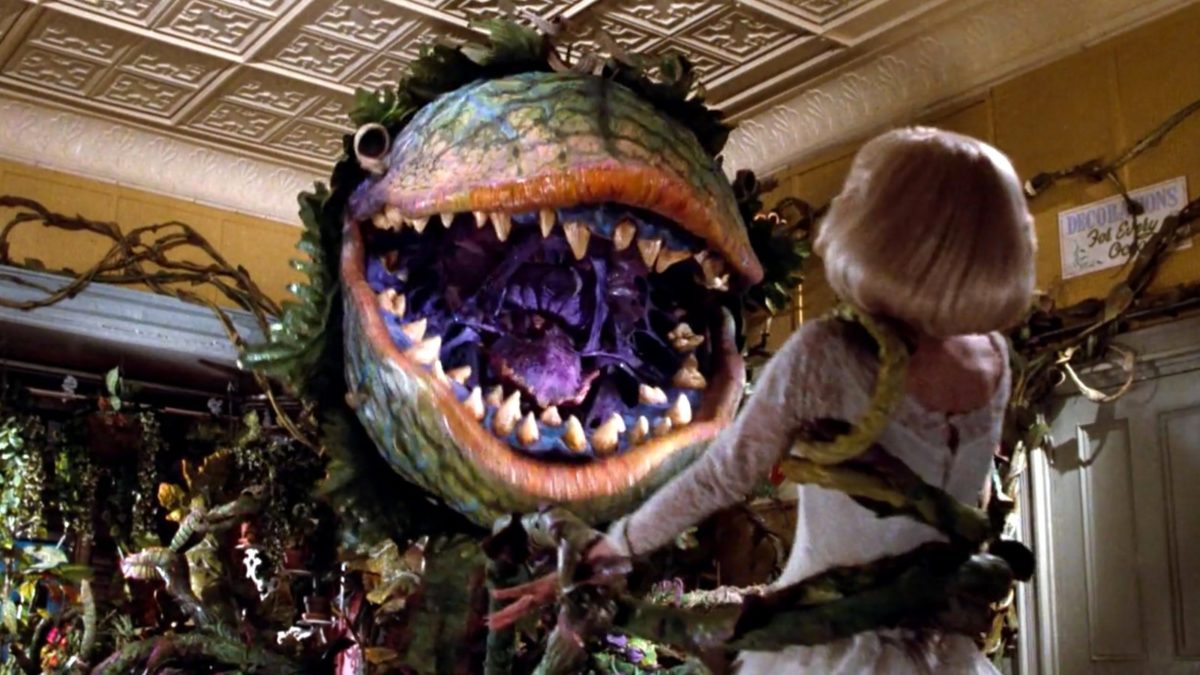In Peak 2020 Development, Many Report Receiving “Mystery Seeds” From China

Thousands of people across the U.S., Canada, and the U.K. have received packages of “mystery seeds” mailed from China. If this is the plot of the new Little Shop of Horrors, I for one welcome our Audrey III overlords.
Americans have been warned by the Department of Agriculture not to plant the seeds, after residents in at least 45 states reported receiving them. While the mind flashes to nefarious talking man-eating plants, or at least something possibly dangerous to the environment, it’s likely that the seeds are the result of a “brushing scam.” The Guardian quotes the USDA as explaining that this is “where people receive unsolicited items from a seller who then posts false customer reviews to boost sales.”
DO NOT OPEN!! Mystery seeds from China showing up in Texas mailboxes https://t.co/MYNQJZY3KE
— KSAT 12 (@ksatnews) July 28, 2020
Brushing scams notwithstanding, there’s something irresistibly intriguing about these so-called “mystery seeds.” You receive an unsolicited package from a foreign address and open it to discover only an unmarked packet of seeds. This is the start of many folktales! Mysterious seeds are coded into our storytelling brains. Imaginations leap to the fantastical or frightening potential they could contain. Unfortunately, the potential is real in this case that the mystery seeds could be harmful, so people who receive the packets should err on the side of caution.
If you receive a unrequested packet of mystery seeds, do NOT plant them. They aren’t magic beans. Please contact your local Ag Commissioner’s office. 559-600-7510
Planting unknown seeds could lead to the introduction of invasive plant species or harmful plant diseases. pic.twitter.com/R5v4RHE8y7
— Fresno AgCommissioner/Sealer of Weights & Measures (@Fresno_AgDept) July 28, 2020
The Fresno Agriculture Commissioner knows what I’m talking about re: magic beans. But they’re right: these packets are unlikely to sprout a beanstalk that leads you into an adventure with a giant and untold riches. They’re probably a scam to falsify sales numbers, but at worst, these seeds could introduce plant diseases or invasive species.
Agriculture officials in Virginia warned that “Invasive species wreak havoc on the environment, displace or destroy native plants and insects and severely damage crops. Taking steps to prevent their introduction is the most effective method of reducing both the risk of invasive species infestations and the cost to control and mitigate those infestations.” So, yeah. You should not be planting these, folks.
I have received two of these packets of mystery seeds so far this year. Knowing that I did not order them, and not having any idea what they were, I discarded them. Now, people all across the country are receiving these “free” seeds from China. https://t.co/92fQFUikdb
— GrumpyGoose (@FelicitousBS) July 25, 2020
There appear to be a variety of mystery seeds on offer. Some seem to be pumpkin, citrus, and radish while others may be herbs. The fact of the matter is, warnings aside, some people are going to plant these regardless, for the sheer novelty of it, while others on Twitter are flipping out that the seeds are somehow related to the coronavirus and dastardly plans organized by the Chinese government. There are two kinds of people:
Fuck it. If I get the mystery seeds in the mail I’m growing it, drying the leaves, and smoking them
— naomi (@lachancenaomi) July 28, 2020
The #CCP is once again trying to infiltrate our nation by mailing unsolicited shipments of foreign seeds to harm American agriculture systems.
If you receive these seeds, please do NOT plant them.
Email SITC.Mail@aphis.usda.gov to report the package. https://t.co/g30v62ZdcV
— Ron Wright (@RepRonWright) July 29, 2020
And now, some words of reason from a crop scientist:
& just because everyone’s having a racist panic meltdown about biohazards does not mean mystery seeds from China are biowarfare
for one thing there are WAY better ways to do biowarfare against crops & if this is an attempt at that, it’s incredibly disappointing. I expect better
— Dr Sarah Taber (@SarahTaber_bww) July 27, 2020
All we can say for sure is that this absolutely does seem like something that was meant to happen in 2020. Did you have “mystery seeds arrive” on your bingo card next to “aliens are probably real”?
NOT NOW, MYSTERY SEEDShttps://t.co/jqEkFDkoI0
— Matt Riva (@mattriva) July 28, 2020
A whole lot of marketers are kicking themselves for not thinking of this first and being able to reveal that they were in fact responsible for the mystery seeds all along. You can’t buy this kind of publicity. To the team behind the inevitable Little Shop reboot: take note.
(via The Guardian, Twitter, image: Warner Bros.)
Want more stories like this? Become a subscriber and support the site!
—The Mary Sue has a strict comment policy that forbids, but is not limited to, personal insults toward anyone, hate speech, and trolling.—
Have a tip we should know? tips@themarysue.com